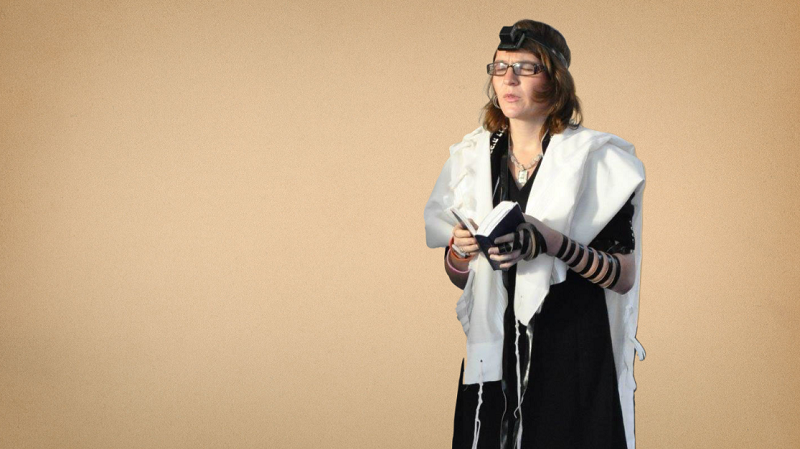As I was preparing for my bat mitzvah, I wondered why the boys were learning how to lay tefillin and a talit, and I wasn’t being taught the same. I like ritual, and I thrive on routine. I also respond well to tactile learning; I need to feel things, hold items in my hand in order to find connection. I decided I wanted and needed to learn how to lay tefillin, so my father agreed to help me learn. He taught me to wrap the soft black leather straps of my great grandfather’s tefillin around my small arms. I placed the well-worn box between my eyes and wrapped myself in my grandfather’s talit. I felt embraced in Judaism and connected to my past and my traditions.

And then my dad reminded me that talit and tefillin are not mitzvot you can take on just for a day. They are commandments which, once you’ve committed yourself, you must do for the rest of your life. In my case, my obligation to wear these garments had to be more than a teenage rebellion against a “boys only” culture. It meant being sure of my words and committing to the cause anytime I was in daily minyan. I had a choice to make. Saying “yes” to tefillin wasn’t like saying I wanted dessert tonight or deciding on a certain new pair of shoes, it was actually pushing me to fulfill a promise for my adult Jewish life.
This week we read Parshat Ki Teitzei. We receive laws about war and taking care of hostages, laws about our clothing, laws about family relationships, including parents and children, laws about taking care of the poor, and so much more. Ki Teitzei is actually the Torah portion with the most number of mitzvot (commandments) in it, but the recurring theme is how we should execute and fulfill the mitzvot prescribed to us.
In the midst of these laws, God is establishing a society that will set safeguards on how we treat one another and how we’ll connect with all in our community. In Chapter 23, verse 24 God issues forth a commandment that I feel is one of the most important lessons to being true to yourself and others. “You must fulfill what has crossed your lips and perform what you have voluntarily vowed to the Lord your God, having made the promise with your own mouth.”
The intent of this commandment is between God and the people; however, I believe the sentiment is one that should exist between people as well. What you say you’ll do, you must do. The Torah is asking us to hold ourselves and each other accountable for the commitments we make. This means that we must think deeply about what we’re committing to and whether or not we’re able to fulfill that commitment.
Parshat Ki Teitzei intends to remind us of the power of our words and our promises, and to think critically before we agree to do something so that we’re not letting the community (or ourselves) down. If we are all created in God’s image, then our promises to one another should be treated with the same respect as holy covenants.



